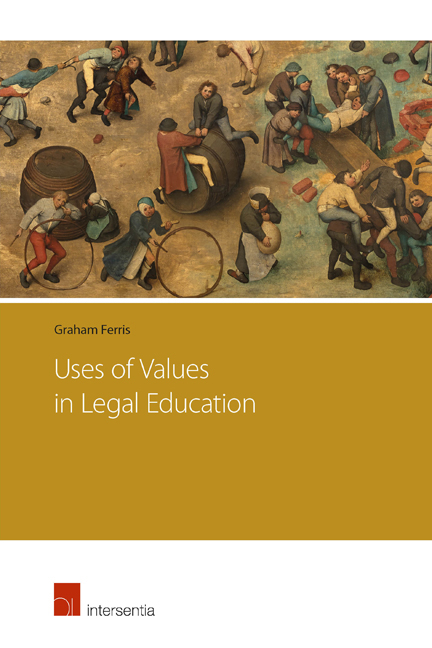Chapter 4 - Student Motivation
from PART II - HOW VALUES SUPPORT LEARNING
Published online by Cambridge University Press: 22 November 2017
Summary
INTRODUCTION: THE IDEA OF INTRINSIC MOTIVATION
Concerns with student well-being and student engagement in their studies led to the research activity and exploratory changes in teaching practice that inform this book. One obvious place to seek guidance on issues of well-being and motivation was psychological theories. Essentially, such studies pointed towards the central importance of student identity and student values for educational practice. This chapter traces the conceptual and practice process that led to this understanding.
If one acts for the enjoyment or sense of achievement derived from the action then the action is ‘intrinsically’ motivated. What is ‘intrinsic’ about the motivation may be the reason for acting. It is important to note what types of reason are considered intrinsically motivating: curiosity, exploration, feelings of competence or power; and what types of reason would not be so considered: it would please my mother or my son; it is necessary if I am to achieve my goals; one needs to take care when marking essays because it is a serious professional responsibility. Alternatively, what is ‘intrinsic’ about the motivation may be the lived experience of acting. Some activities simply feel good, draw the eye, and are tempting. Thus, most people like to chat and laugh together, to play sports, to listen to music and move to the beat. Of course not all social groups are attractive, we rarely enjoy sports we are unusually poor at playing, and someone else's music can be the very opposite of attractive. In short it cannot be merely the activity itself that makes it intrinsically motivating, it must be the interaction between the act and the actor. Apart from any other factors, what used to be intrinsically attractive can become dull with familiarity and repetition: novelty is oft en a part of what makes something intrinsically motivating. Finally, it is clearly not the case that these two aspects are mutually exclusive or contradictory. Oft en an activity may be intrinsically motivating because it shows both aspects.
Thus, there seem to be at least two aspects of ‘intrinsic’ motivation identifiable.
- Type
- Chapter
- Information
- Uses of Values in Legal Education , pp. 117 - 144Publisher: IntersentiaPrint publication year: 2015



